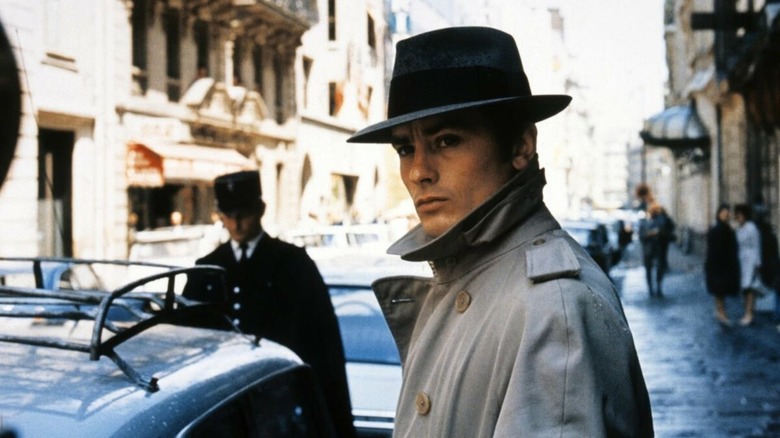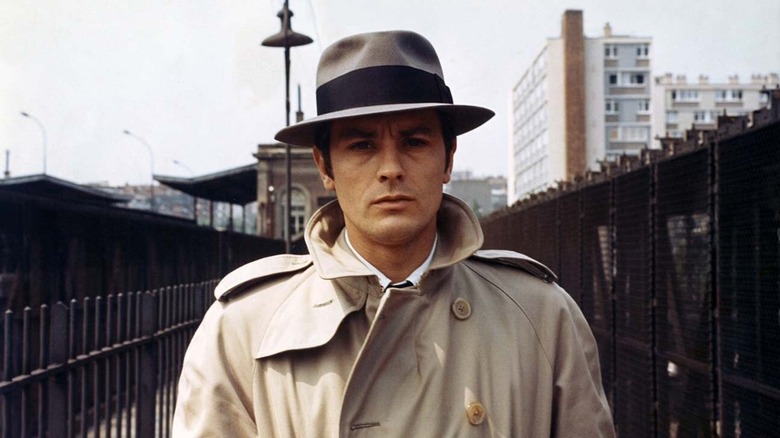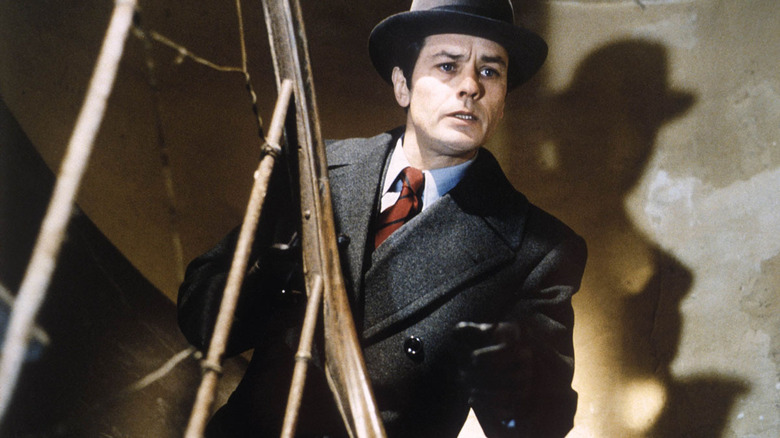The legendary, and legendarily good-looking, worldwide film star Alain Delon handed away on Sunday, August 18, 2024. He was 88.
Delon was greatest identified for taking part in heavies and difficult guys, however he had unbelievable vary, portraying all types of roles in his 60-plus-year profession. Most American movie college students have skilled the bolt of electrical energy seeing Delon for the primary time in an acclaimed worldwide hit like René Clément’s Tom Ripley adaptation “Purple Midday,” or Luchino Visconti’s “Rocco and his Brothers” (1960) or the identical director’s large historic epic “The Leopard” (1963). Delon made a number of movies with Clément (together with “The Pleasure of Residing,” “The Pleasure Home,” and “Is Paris Burning?”), and was typically paired with a lot of the greatest European administrators of his era, together with Michelangelo Antonioni (he was in “L’Eclisse”), Louis Malle (“Spirits of the Lifeless”), Joseph Losey (“The Assassination of Trotsky”), Agnès Varda (“One Hundred and One Nights”), and even Jean-Luc Godard (“New Wave”). Anybody with a subscription to the Criterion Channel has seemingly seen a number of Alain Delon motion pictures with out even attempting.
Maybe most notably, Delon made three movies with the undisputed grasp of movie noir: Jean-Pierre Melville. Delon performed the sexy-as-f*** Jef Costello within the hitman movie “Le Samouraï.” He additionally appeared within the 1960 crime movie “Le Cercle Rouge” and the cop film (and Melville’s final) “Un Flic.” One might argue that the French New Wave helped outline the trendy concept of cinematic “cool,” and that Delon (together with Jean-Paul Belmondo) served because the idea’s poster boys.
Curiously, solely two of Delon’s motion pictures have 100% approval rankings on Rotten Tomatoes, and solely a kind of two was listed above. Even “The Leopard” has detractors.
Le Samouraï
Based mostly on 40 critiques, “Le Samouraï” is deeply beloved by critics. Certainly, a lot of the essays you may discover posted on Rotten Tomatoes are from retrospectives and reassessments that discover, even a long time after the very fact, “Le Samouraï” is smoky, suave, and wonderful.
Roger Moore, writing for Film Nation, identified that “Le Samouraï” just about invented a sure type of assassination thriller, and certainly would be the single movie to have turned “hitman” right into a film archetype. There have been numerous movies about skilled assassins and hitmen, and most of them are inclined to depict the killers as ineffably cool and bottomlessly skilled. “Le Samouraï” outlined the trope, and Delon embodied it. Credit score as nicely to the costume designers who put Delon in top-of-the-line coat-and-hat combos in movie historical past.
Writing for the Washington Put up, veteran movie critic Kenneth Turan famous that Melville’s movie was austere and poetic, but nonetheless managed to operate as an thrilling potboiler. It is weirdly mesmerizing, different critics have stated, and but thrilling the way in which a Hollywood thriller must be. Most critics have referred to as consideration to the way in which “Le Samouraï” influenced style and pop filmmaking basically. Certainly, it is onerous to be important of such a seminal characteristic. Fortunately, along with being influential, “Le Samouraï” can also be wonderful. Roger Ebert included it on his checklist of Nice Motion pictures, declaring that the plot turns into increasingly difficult with no viewer even essentially noticing.
Mr. Klein
Take into account that a 100% approval ranking solely signifies that 100% of critics gave it a “cross” ranking, and that many rankings for “Le Samouraï” charge it at a 3.5 or 4 out of 5. A number of critics really feel the movie is slightly too minimalist and spare for its personal good. Certainly, it isn’t almost as a lot enjoyable as Melville’s different noir movies like “Bob la Flambeur” and “Le Doulos.”
The opposite Alain Delon movie with a 100% approval ranking on Rotten Tomatoes, based mostly on solely 18 critiques, is Joseph Losey’s 1976 WWII drama “Mr. Klein.” Not as nicely referred to as Delon’s work with Melville, “Mr. Klein” follows a well-to-do Catholic artwork seller who’s shopping for artwork collections from rich Jewish households as they’re attempting to flee Nazi-occupied France. Mr. Klein helps the oppressed Jews, however makes an attempt to stay “apolitical,” a meaningless phrase throughout WWII. Mr. Klein, nonetheless, will get in hassle with the native Nazis when one other man named Mr. Klein, a rich Jewish man that Delon has by no means met, begins forwarding his mail to him. The movie swirls into an odd case of blended identities, and it turns into unclear which Klein is which.
Budd Wilkins, writing for Slant, described Losey’s movie as a mix of heady wartime drama and bleak fable, utilizing semi-fantastical parts to focus on the grim nature of persecution. The wonderful Peter Strick, writing for Sight & Sound, thought of “Mr. Klein” to be “a completely admirable murals.”
Each of the above movies can be found to look at on the Criterion Channel. It’s best to watch them as quickly as doable.
R.I.P. Alain Delon. You had been the good.


